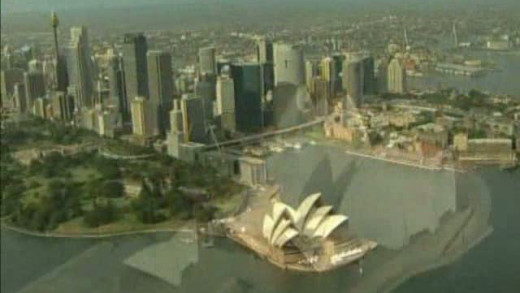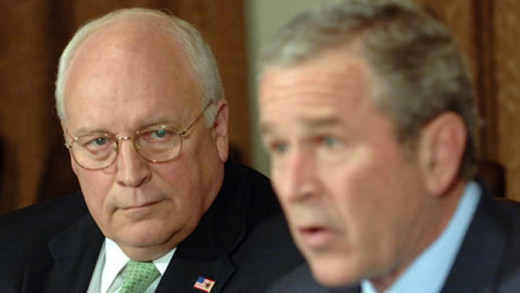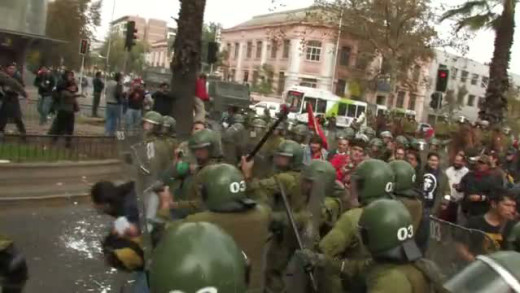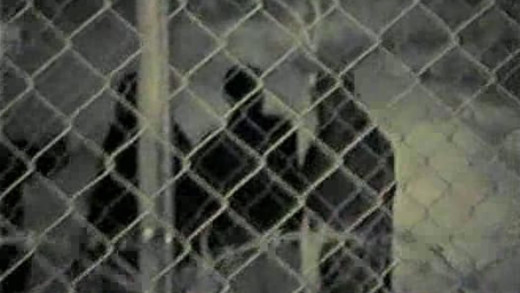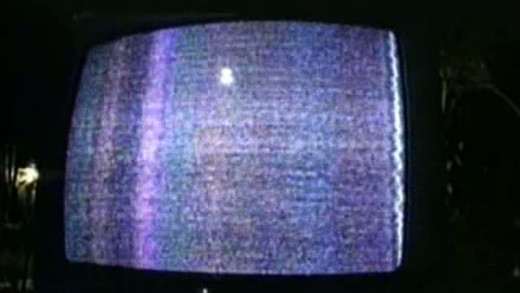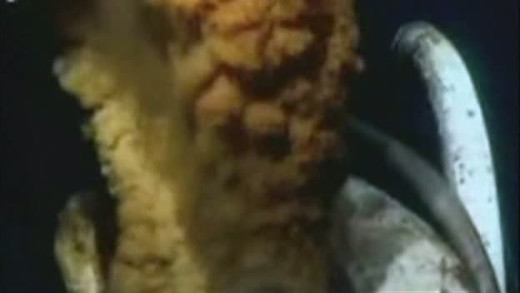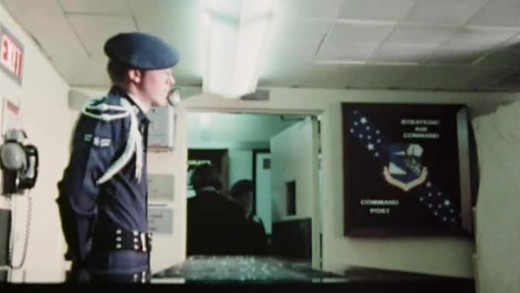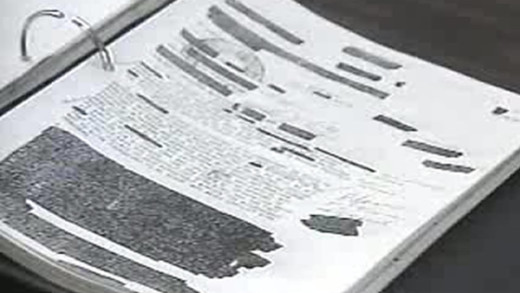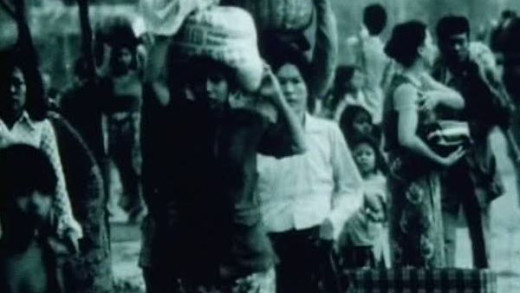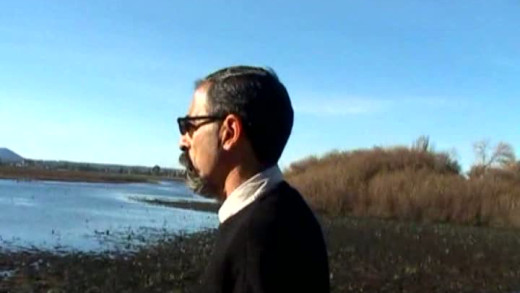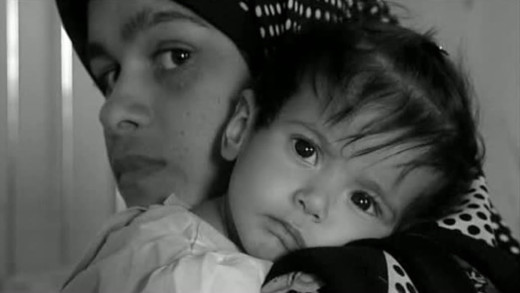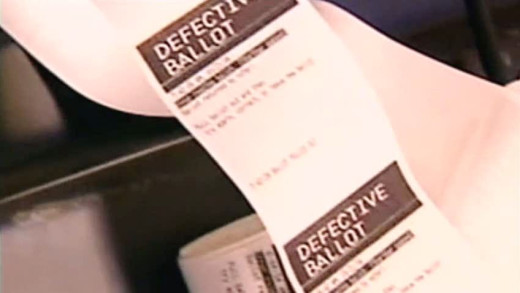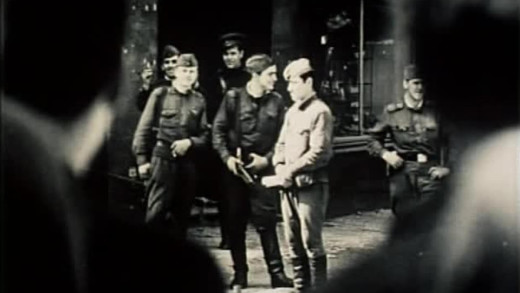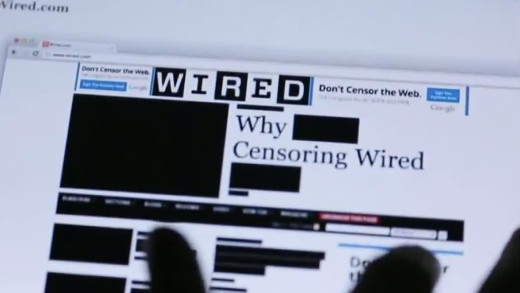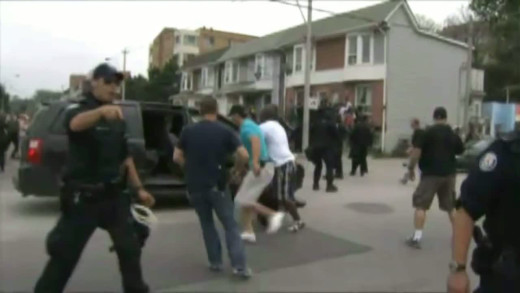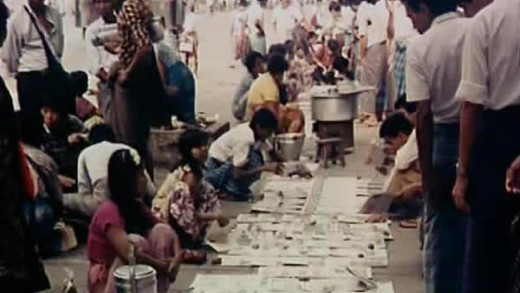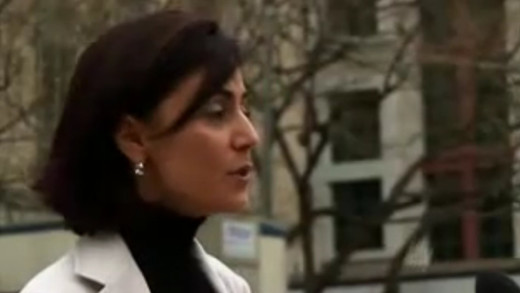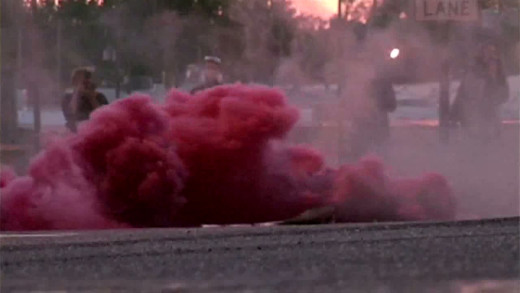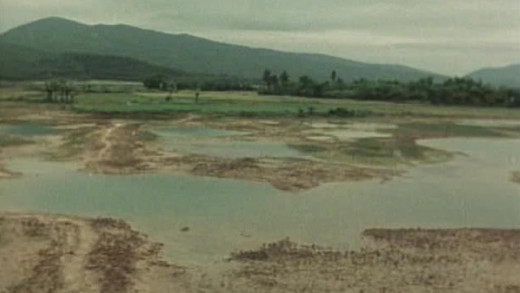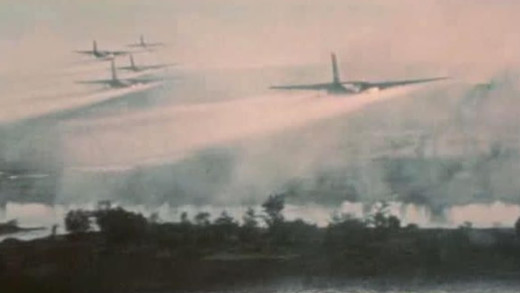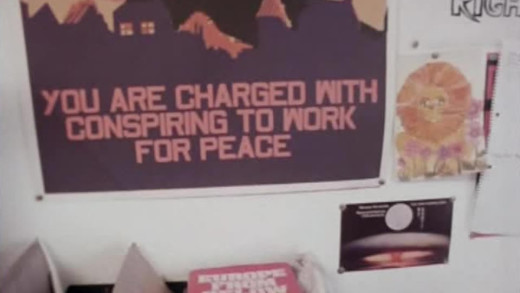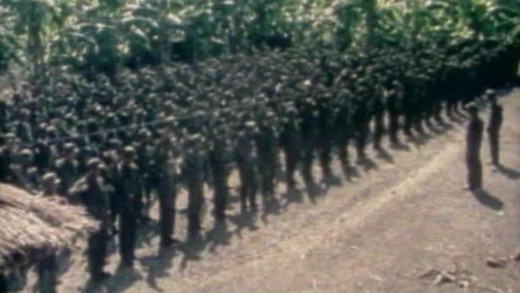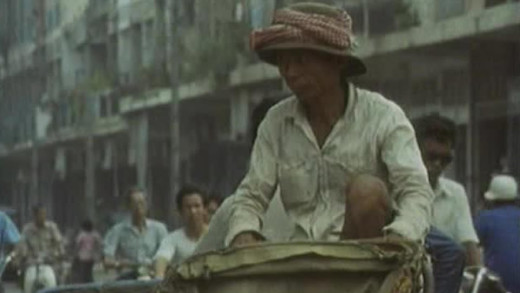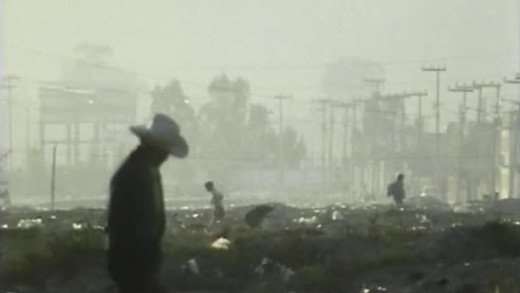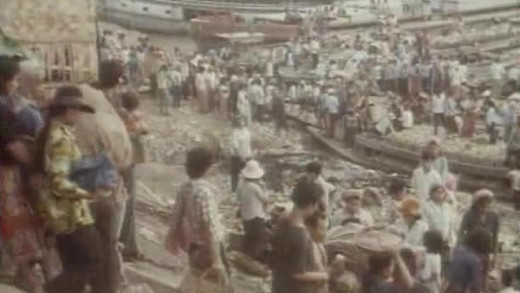The 2000 Olympic Games in Sydney were universally recognised as an overwhelming success. The Australian heroine from start, when she carried the Olympic torch into the stadium, to finish, as she crossed the line to take 400m gold, was the indigenous athlete Cathy Freeman. Against the will of many of her still oppressed people, she came to represent the symbol, albeit shallow, of reconciliation between White Australia and Indigenous Australia. But the frenzy of flames and fireworks surrounding the Games blinded the rest of the world to the real history behind it all...
As the U.S. stands at the brink of invasion into Iraq, many are now warning about the potential consequences: the danger of getting 'bogged down' in Baghdad, the prospect of long-time allies leaving America's side, the possibility of chaos in the Middle East, the threat of 'renewed terrorism'. The Bush administration insiders who helped define the doctrine of pre-emption and who have argued most forcefully for invasion, are determined to set a course that will "remake America's role in the world"...
The Chicago Conspiracy reviews the legacy of the military dictatorship in Chile by sharing the story of combatant youth who were killed by the Pinochet regime as a backdrop to the history of the military dictatorship and current social conflict. The larger history is wrapped around three shorter pieces, which explore the student movement, the history of neighbourhoods that became centres of armed resistance against the dictatorship, and the story of the indigenous Mapuche...
To its backers, Woomera detention centre played a so-called "humane yet crucial role in housing the growing numbers of 'boat people' landing on Australia's shores." To its critics, this prison, as a heavily guarded cluster of buildings ringed by red desert and razor wire, represented the "dead-heart of asylum-seeker policy" and Australia's lacklustre regard for human rights. Woomera opened for business less than four years ago. Built for 400 people, it soon housed more than 1,400. It became notorious for riots, protests and breakouts by desperate detainees. There were reports that mental illness and self-harm were rife and as the reports mounted, TV cameras captured the protests at the perimeter fence. Certain press warned of detainees' declining health and morale. Yet when Woomera was quietly placed in mothballs last month, its full story remained to be told...
The Revolution Will Not Be Televised documents first-hand the events in Venezuela leading up to and during the April 2002 coup d'état attempt which briefly deposed President Hugo Chávez. A television crew from Ireland's national broadcaster, RTÉ happened to be recording a documentary about Chávez during the events. Shifting focus, the crew followed events as they occurred and captured images that they say contradict explanations given by Chávez's opposition, the private media, the US State Department, and then White House Press Secretary Ari Fleischer. The Revolution Will Not Be Televised details how the coup was the result of a conspiracy between various old guard and anti-Chávez factions within Venezuela and the United States...
Cover Up
Why did appointed officials of the Australian Reserve Bank and its employees break sanctions in Iraq and cosy up to Saddam Hussein through a frontman during the late 1990s, early 2000s and beyond? Why did a former Deputy Governor and other directors hand-picked by the Reserve Bank to safeguard its subsidiary companies from corruption, end up--over a decade--overseeing some of the most corrupt business practices possible? How did they allow millions of dollars to be wired to third parties in foreign countries--including a known arms dealer--in order to win banknote contracts knowingly using bribery and supporting corruption?
Founded in 1976, the United States Office of Multilateral Diplomacy--known informally as the Zap Office--was created by Henry Kissinger to try and influence the voting patterns of third world nations at the United Nations by withholding food aid to those who did not vote alongside the United States. Zap! The Weapon Is Food is an investigation of this policy, one that makes food more powerful than oil...
One year after BP's Deepwater Horizon rig exploded spewed a massive 170 million gallons of oil into the Gulf of Mexico, BP claims victory -- that most of the oil is gone. Investigative journalist Greg Palast sets off to test this claim in person and digs into the history of BP and similar incidents. Revealed is the corporations collusion with government, its strong political influence worldwide, along with the massive ecological impact of the BP explosion, set to last for decades...
Mr Nixon's Secret Legacy covers the absurdity of the supposed logic behind "Mutual Assured Destruction" or MAD--a doctrine of military strategy and the national security policy of the United States during the cold war. During this time, MAD is supposedly disassembled, but replaced with a strategy called "Counterforce." This film investigates the propositions of "Counterforce," questioning the rhetoric of executing a "flexible, acceptable nuclear war."
The Panama Deception documents the invasion of Panama in December 1989—codenamed Operation 'Just Cause.' The film gives context to the events which led to the invasion, and explores the real impact on the ground and devastating aftermath—all contrary to the views portrayed by mainstream media and rhetoric espoused at the time by government officials in the Bush administration. News footage and media critics reveal the extent of media control and self censorship of the invasion, relevant to any news coverage today, particularly during times of war.
As the first complete report of the atrocities committed by the Khmer Rouge and the devastating affects of US bombing in Cambodia during the Vietnam War, Year Zero -- The Silent Death Of Cambodia is an important and historic document of the grim reign of Pol Pot and the world's response of indifference and inaction...
Payback Time
Payback Time recounts the experiences of Ramin Bakhtiarvandi as an asylum Seeker in Australia's Detention Centres from June 2000. After his release from a 4 year long detention, Ramin receives a $227,000 bill from the government. Payback Time raises serious questions about the conduct of the Australian Government to this day when dealing with asylum seekers, as well as revealing the harsh realities of a racist culture and complicit mainstream media.
After Iraq invaded Kuwait in 1990, the United Nations (backed strongly by the US and UK) imposed harsh sanctions on Iraq that lasted for 10 years (1991-2001); the harsh restrictions on imports of everything, including access to key medicines, resulted in over a million deaths, more than half a million of which were women and children. That's more deaths than the two atomic bombs dropped on Japan and the events of September 11 combined. The purpose was regime change, but it never came. The overwhelming majority of those killed were the poor, elderly, women and children. Empirically, sanctions overwhelmingly punish the poor, the destitute. While the sanctions were in place, the richest people in control of the resources (Saddam Hussein et al.) still had everything they wanted: food, cars, mansions, free access to medicines, etc...
Uncounted documents how the election fraud that altered the outcome of the 2004 election led to even greater fraud in 2006 and now looms as an unbridled threat to the outcome of the 2008 and future elections. The film shows how easy it is to change election outcomes and undermine election integrity across the United States using electronic voting machines and even other simple methods of manipulation...
A Faraway Country is an examination of the Czech underground movement known as the Charter 77--an informal civic initiative in communist Czechoslovakia from 1976 to 1992, part of the Communist Soviet bloc. The film shows interviews with members of Charter 77, and others, describing first-hand the totalitarian communist regime, and their response to it.
In January 2012, two controversial pieces of legislation were making their way through the United States Congress. SOPA, the "Stop Online Piracy Act", and PIPA, the "Protect Intellectual Property Act", were meant to 'crack down' on the illegal sharing of digital media. The laws were drafted on request of the 'content industry' -- Hollywood studios and major record labels. But websites reacted against the government to speak out against SOPA, and the bill was effectively killed off after the largest online 'protest' in history. But it was only one win in a long battle between authorities and online users over Internet regulation. SOPA and PIPA were just the latest in a long line of 'anti-piracy' legislation that governments have been pressing since the 1990s. Can and should the internet be controlled? Who gets that power? How far will the United States government go to control the Internet?
Ground Noise And Static is a video report on the protests that occurred in connection with the Democrat and Republican National Conventions in 2008. Corporate media would cover the platitudes and posturing of the politicians, but this film is interested in something else -- a story hidden in plain sight, told from the perspective of activists...
In June 2010, leaders from the twenty largest economies met in Toronto, Canada with representatives of corporate interests to discuss the policies that shape globalisation. With exclusion zones, overlapping layers of security fencing and an estimated 25,000 police and military personnel, the city was transformed into an armed grid. Over 1.3 billion dollars were spent on security measures -- more than all previous G8 or G20 meetings combined. Tales From The G20 shows some sides of the Summit, from unmarked vans with snatch squads of plainclothes police to the pre-emptive arrest of people now facing years in prison for organising demonstrations or simply being on the street...
Inside Burma -- The Land Of Fear exposes the history and brutality of one of the world's most repressive regimes. Nearly the size of Texas, with a population of more than 40 million, Burma has rich natural resources. Yet Burma is also a secret country. Isolated for the past 40 years, since a brutal military dictatorship seized power in Rangoon, Burma has been relegated to one of the world's poorest countries, with the assault on its people all but forgotten by the rest of the world. Award winning film-makers John Pilger and David Munro go undercover to expose how the former British colony is ruled by a harsh, bloody and uncompromising military regime...
In the wake of September 11, 2001, Sibel Edmonds is approached by the FBI. As an American of Iranian and Turkish origin, Edmonds' linguistic skill-set makes her a valuable asset to the Language Services Unit, where she spends months translating high-security clearance documents. One day shortly after reporting the possible infiltration of her unit by Turkish spies to her supervisors and their supervisors, Edmonds' world is turned upside-down. Instead of seeing her colleague become the target of an investigation, she is interrogated, then unceremoniously fired and warned not to pursue her claims any further as she would be watched and listened to. Kill The Messenger documents both Edmonds' personal struggle to expose the criminality uncovered while at the FBI, and also the September 11 tied 'secret' itself--the network of nuclear black-market, narcotics and illegal arms trafficking activities.
Resist -- The Aftermath Of The RNC8 follows activists Rob Czernik, Garrett Fitzgerald and Luce Guillen-Givins; attorney Robert Kolstad, volunteers/arrestees from the community, and others impacted by the actions against the Republican National Convention in 2008. Taking a look back over the last year, the video shares some helpful advice for activists organising under state repression...
In 1978, three years after the end of the Vietnam War, film-maker John Pilger travels back to Vietnam to find out what had happened under the new regime. Do You Remember Vietnam? recounts numerous personal stories: talks with a young tour guide at a war crimes museum who had been imprisoned in the infamous US tiger cages; a former North Vietnamese soldier into the underground base where he spent 20 years crawling through tunnels undetected; and views from the streets in Hanoi, where the largest single aerial bombardment in history took place.
From 1974, Hearts and Minds documents the events of the Vietnam War using news clips as well as directly captured footage showing actions and other happenings on the ground by the United States military during the war. The film also follows Vietnamese people themselves as to how the war affects them and why they fight back. Hearts And Minds reveals a racist and self-righteous militarism of the west, ironically in stark similarity to recent happenings in Iraq and elsewhere.
A Nod And A Wink reviews the use of vague Conspiracy laws in Britain from 1975, laws which are much in the same as those used in police states such as Brazil and the Soviet Union to suppress political and moral dissent. This film raises and addresses the serious questions about the way the legal system works in Britain--and indeed elsewhere...
John Pilger once again travels to Cambodia to report on the brutality and murderous political ambitions of the Pol Pot and Khmer Rouge totalitarian regime which brought genocide and despair to the people of Cambodia; while neighbouring countries, including Australia and the United Nations shamefully ignored the immense human suffering and unspeakable crimes that bloodied the country...
Cambodia -- The Betrayal is the fourth follow-up to John Pilger and David Munro's series on Cambodia, the film Year Ten from 1989, which examined the hypocrisy of western geopolitics by looking at the way in which the United Nations pressured Cambodia to accept the Khmer Rouge regime as part of the United Nations peace plan.
The Mexicans
The Mexicans reports on the history of political repression and corruption in Mexico, a country dominated to this day by its close neighbour—the United States.
Cambodia -- Year Ten Update examines the reactions of the British government and the United Nations to the international outcry over the situation in Cambodia.
